The first proper electric 4x4 off-roader is finally here, but not from who you'd think
The MWM Spartan 2.0 is the electric 4x4 we've been waiting for
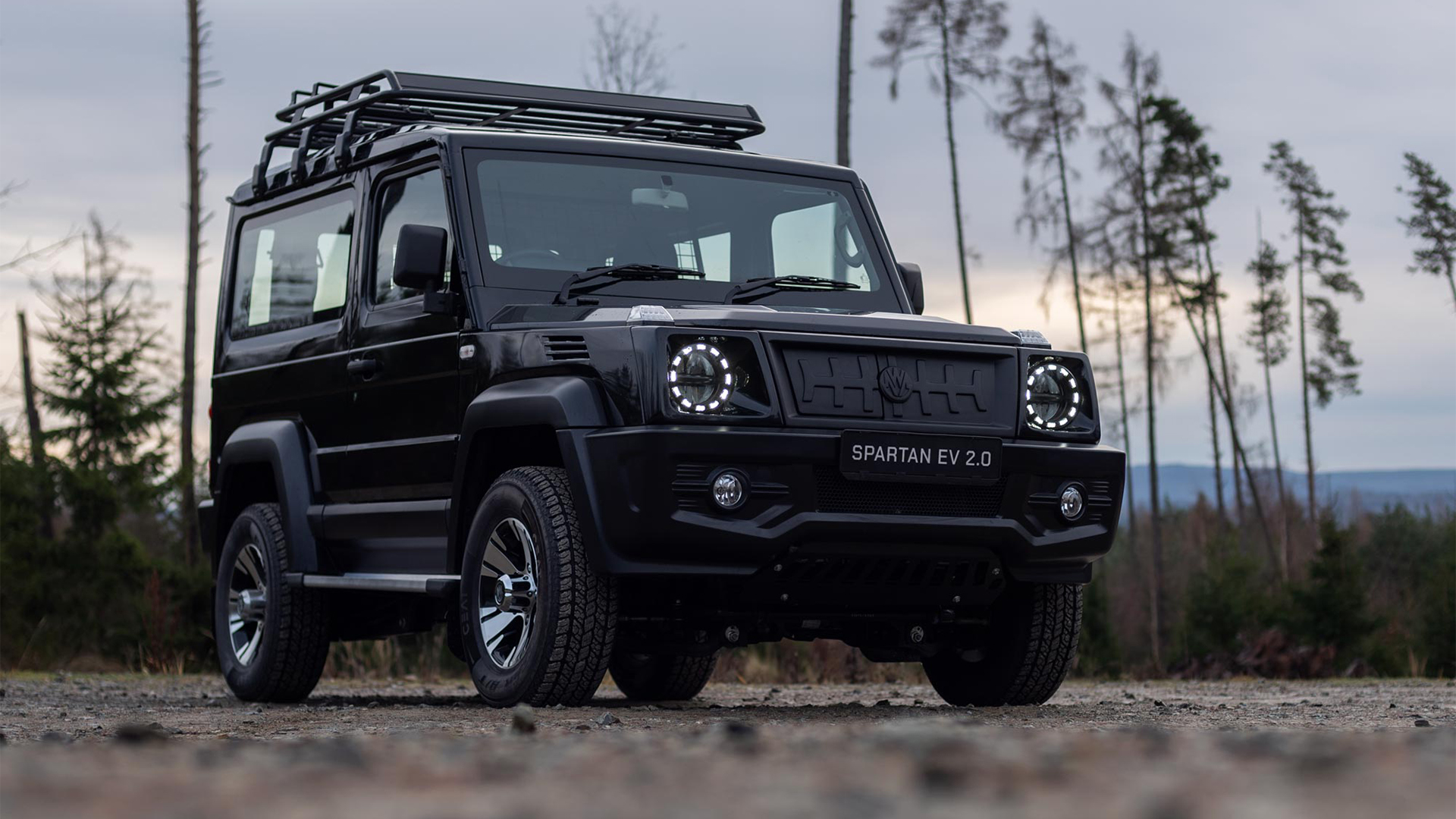
Sign up for breaking news, reviews, opinion, top tech deals, and more.
You are now subscribed
Your newsletter sign-up was successful
In a surprise move, Czech start-up MW Motors (MWM) has pipped all of the recognized automotive brands to the post with the launch of its all-electric Spartan 2.0 in the UK – and it's a true all-wheel-drive off-roader that comes with a realistic price tag.
The £49,995 (around $63,000 / AUS$97,000) Spartan 2.0 uses a single electric motor to transfer 174bhp and an impressive 1,075Nm of torque to either two or all-four wheels via a transfer case.
Where most other electric SUVs merely hint at off-road intentions, MWM isn’t messing around when it comes to capability. There are manually locking differentials at the front and rear, electronic hill descent control and an impressive 38-degree approach and 35-degree departure angle, allowing it to crawl over rocks, descend steep hills and climb craggy surfaces without risk to the body work.
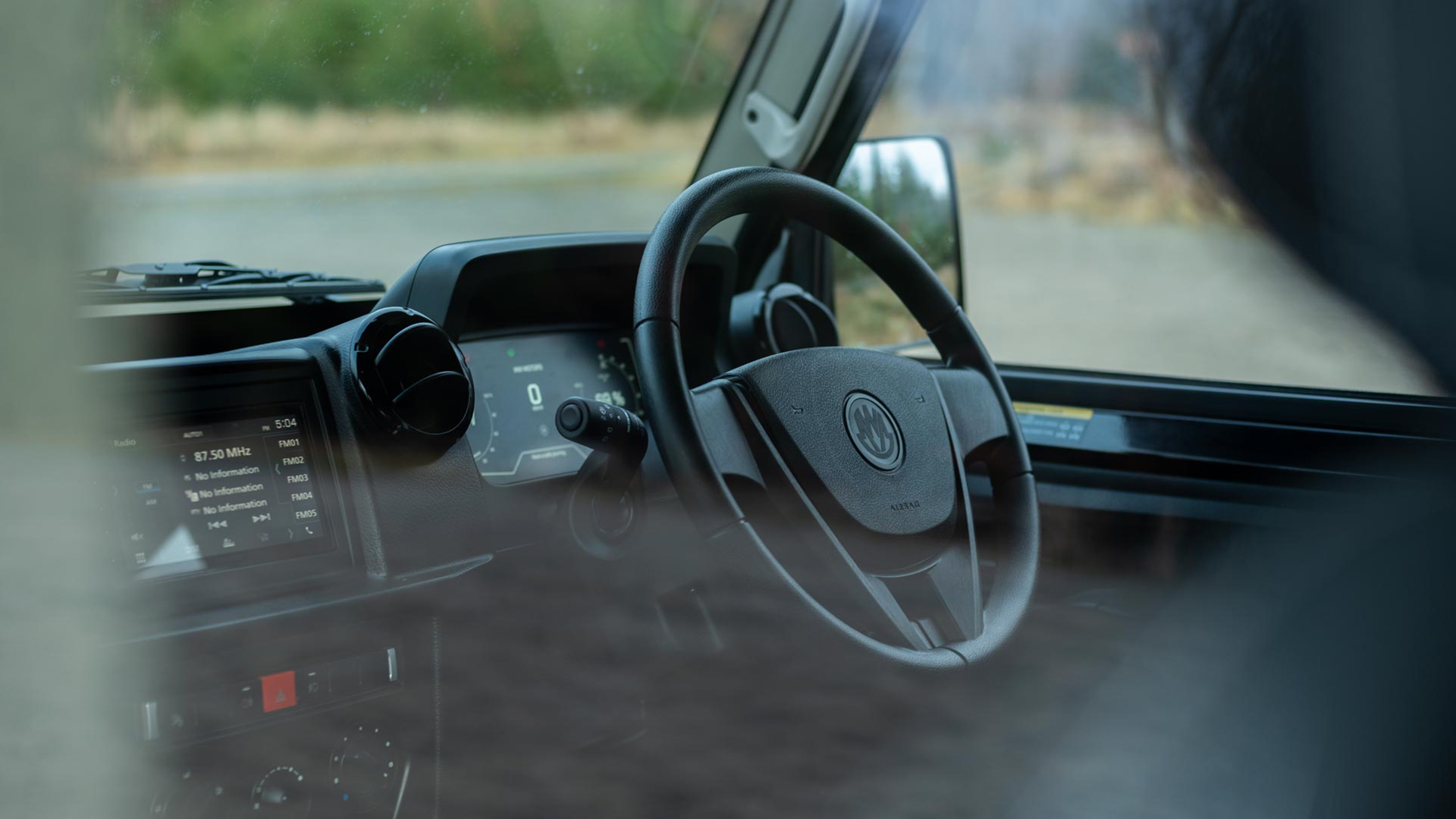
To keep the battery packs as far away from harm as possible, the 57.4kWh unit is located underneath the bonnet, where an internal combustion engine would normally reside, with official range pegged at around 150-miles.
MWM wants the Spartan 2.0, which is a heavily-revised version of its original offering (itself based on an old Russian military 4x4) to tackle challenging daily tasks, rather than act as a long distance cruiser. With that in mind, it can accept faster charging rates of up to 90kW, meaning a fairly standard 20-80 per cent top up should take around 1.5 hours, so it can be brimmed and put back to work in rapid time.
Load capacity is rated at 1,025kg, while it can merrily tow 3,000kg – almost as much as a single motor Tesla Cybertruck. Coil springs and an anti-roll bar at the front and rear aim to soak up bumps and keep maintenance to a minimum, while bidirectional charging from the vehicle's battery delivers power to tools and other bits of machinery.
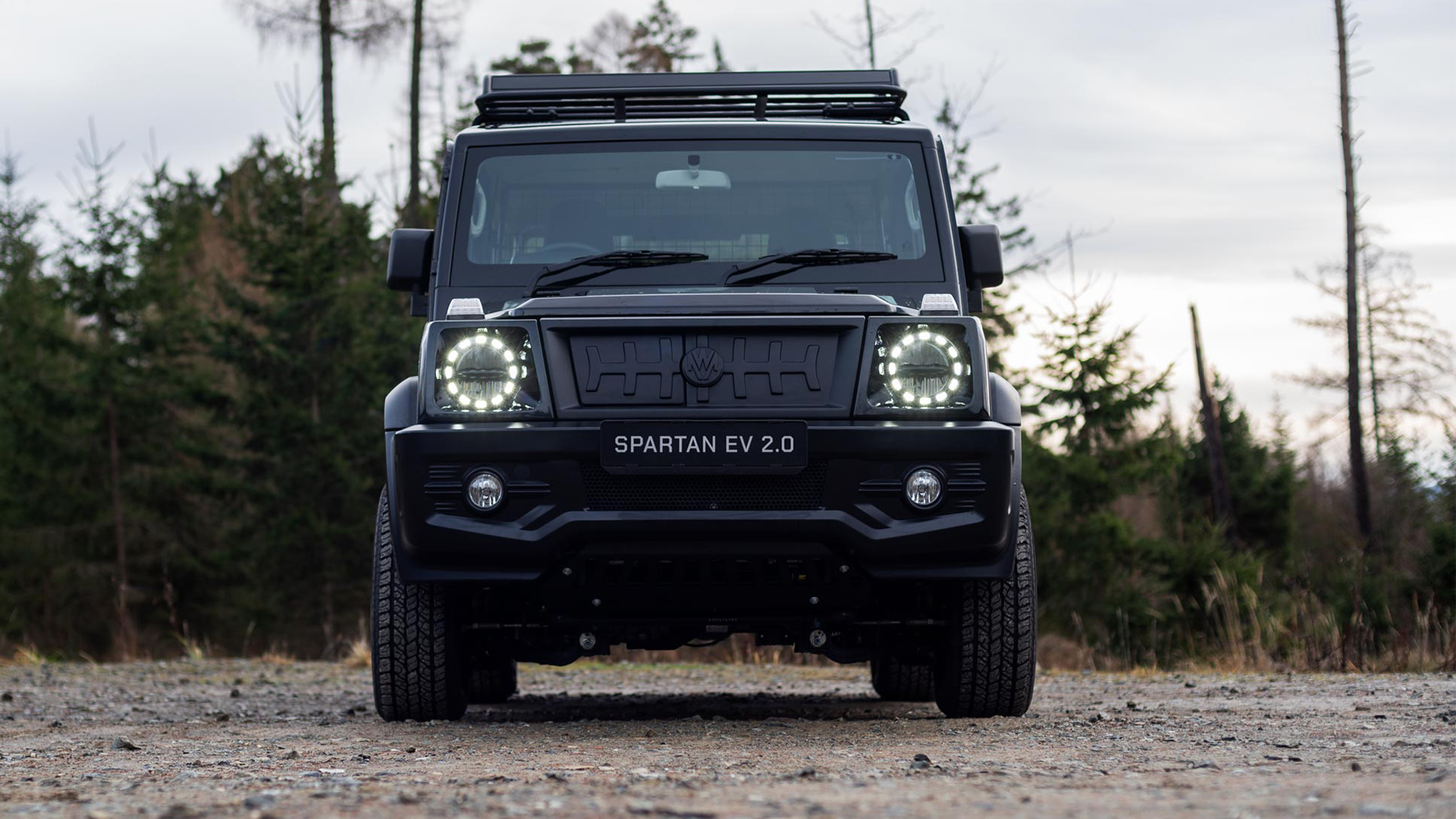
This revised 2.0 version, which looks like the lovechild of a Suzuki Jimmy and a Merc G-Wagon, goes heavier on the creature comforts than its predecessor, with a touchscreen infotainment system embedded in the centre console and a digital dash taking care of instrumentation.
Sign up for breaking news, reviews, opinion, top tech deals, and more.
Speaking to Autocar, MWM general manager Lukás Metelka said: "We haven't taken away any of the 4x4 capabilities, but this car provides much more than just a rough 4x4 experience. It's really very comfortable, not only in [rural] terrain but also on the road. The quality on the road isn't compromised. It’s comparable to any other car that you will see on a highway."
This manifests itself in adjustable seats, an adjustable steering wheel, electric windows air conditioning and Bluetooth connectivity for hands-free calling. Heck, you'd be lucky if your trusty old Land Rover Defender had some of that stuff.
Hooray for the first 'proper' electric off-roader
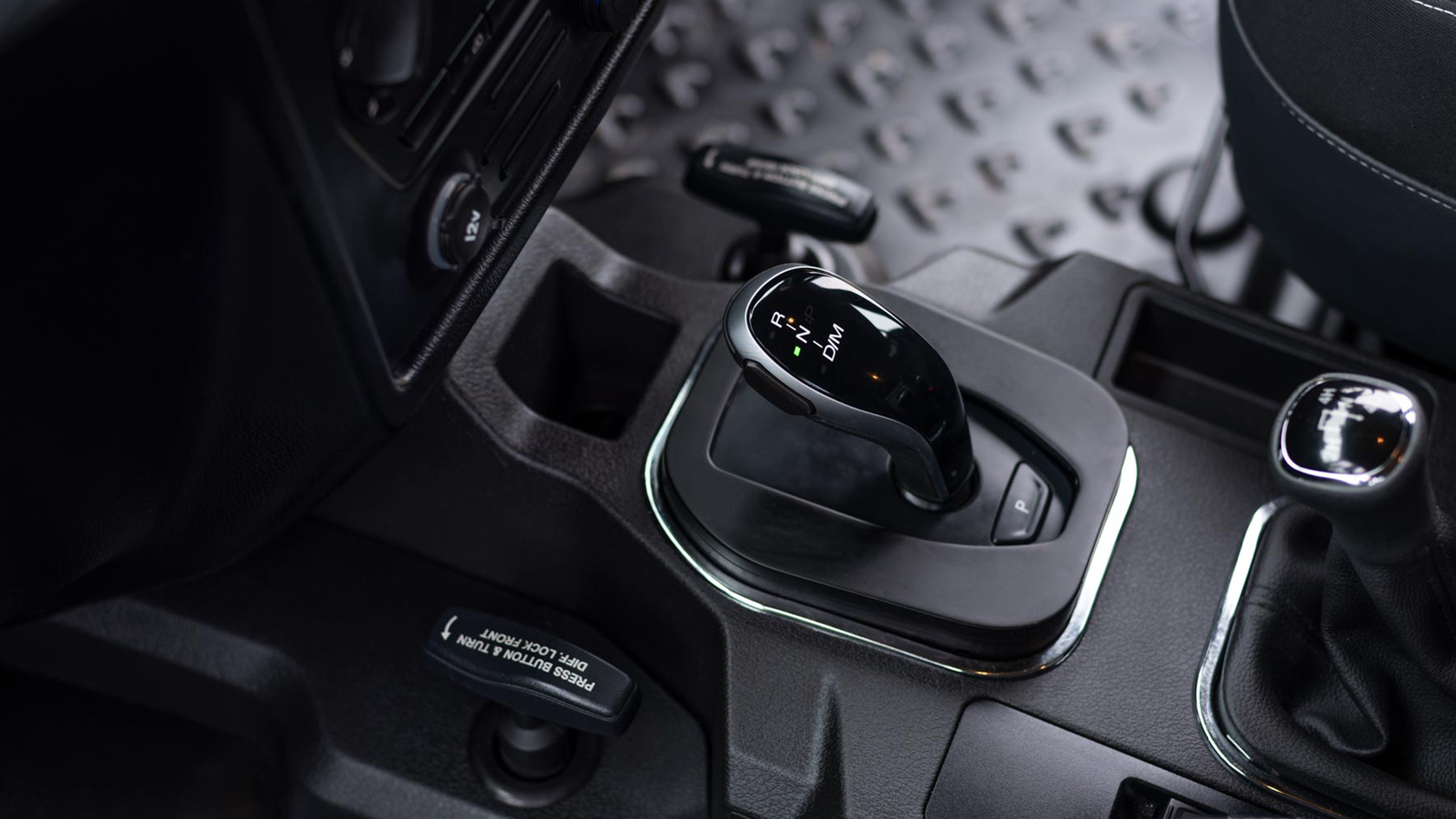
Mitsubishi, Toyota, Land Rover, Suzuki, Volkswagen, Mercedes-Benz… these are all automotive brands that could have quite easily produced a reputable and affordable electric off-roader that doesn't shy away from rolling its sleeves up and getting stuck in. But they haven't.
Instead, the world's legacy automakers seem hellbent on producing ever-more expensive SUVs and crossovers that look the part, but aren’t actually very good at getting mucky.
Granted, the G-Wagon has long been a modern status symbol, as opposed to the original military mover, but the upcoming electric Mercedes-Benz EQG is set to cost around $150,000 / £100,000 / AUS$230,000 and boast an interior you wouldn’t want to sneeze in, let alone use to transport livestock.
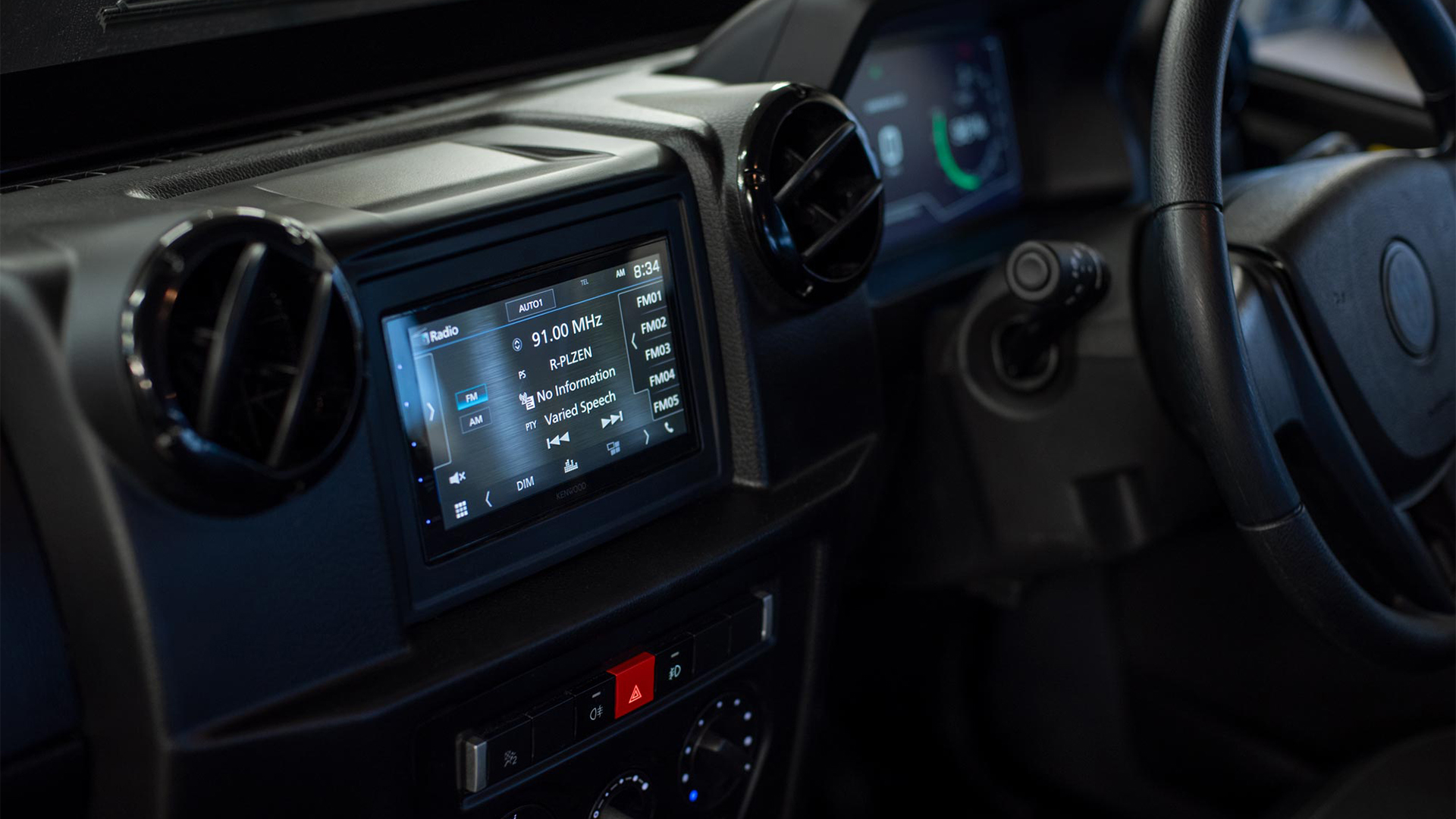
Land Rover drew similar criticism with the latest Defender, with many bemoaning its lack of built-in toughness and overemphasis on opulence. Even the world of working pick-up trucks has pushed ever-more upmarket.
As the globe's leading automotive brands grapple with profitability in the EV age, it could be down to smaller outfits like MW Motors to produce genuinely capable specialist vehicles like its Spartan. Thankfully, the relative simplicity of EV components means development costs are reduced. So, as long as the supply chain is reliable, these savings can be passed on to the hard-working consumer.
What’s more, working commercial vehicles like this also make sense when it comes to charging. There’s a high chance it will be easy to install a domestic wall charger in something like a farmyard, while regular and predictable shorter journeys means that 150-mile range will be a more realistic figure.
You might also like

Leon has been navigating a world where automotive and tech collide for almost 20 years, reporting on everything from in-car entertainment to robotised manufacturing plants. Currently, EVs are the focus of his attentions, but give it a few years and it will be electric vertical take-off and landing craft. Outside of work hours, he can be found tinkering with distinctly analogue motorcycles, because electric motors are no replacement for an old Honda inline four.